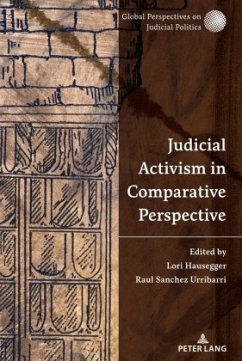What is understood by judicial activism in different jurisdictions? Beyond a superficial agreement, are we talking about the same phenomenon across countries and systems (or over time), and to what extent? This book seeks to articulate a comparative perspective on judicial activism, bringing together a selection of theoretical and empirical studies across different socio-political and institutional contexts. The chapters not only demonstrate the complexity of the concept, but also illustrate the different meanings of judicial activism across different types of political regimes, legal systems, and judicial institutions. The book looks at three examples from western democracies with common law systems (the U.S., the U.K., and Canada), and then at six examples from civil law systems in Latin American countries with very different experiences with judicial activism, democracy, and liberal constitutionalism: Brazil, Colombia, Costa Rica, Mexico, Paraguay, and Venezuela. These case studies are analyzed with reference to a common conceptual framework, assisted by a beginning theoretical essay and two concluding cross-national studies highlighting different theoretical and methodological approaches. This book contributes to current debates on a major topic in comparative law and courts research that, despite its importance in and outside the scholarly world, remains subject to significant debate. The book should be useful for students, teachers, and researchers across a variety of disciplines - including Constitutional Law, Comparative Law, Comparative Politics, Judicial Politics, and Sociolegal Studies.
Bitte wählen Sie Ihr Anliegen aus.
Rechnungen
Retourenschein anfordern
Bestellstatus
Storno








